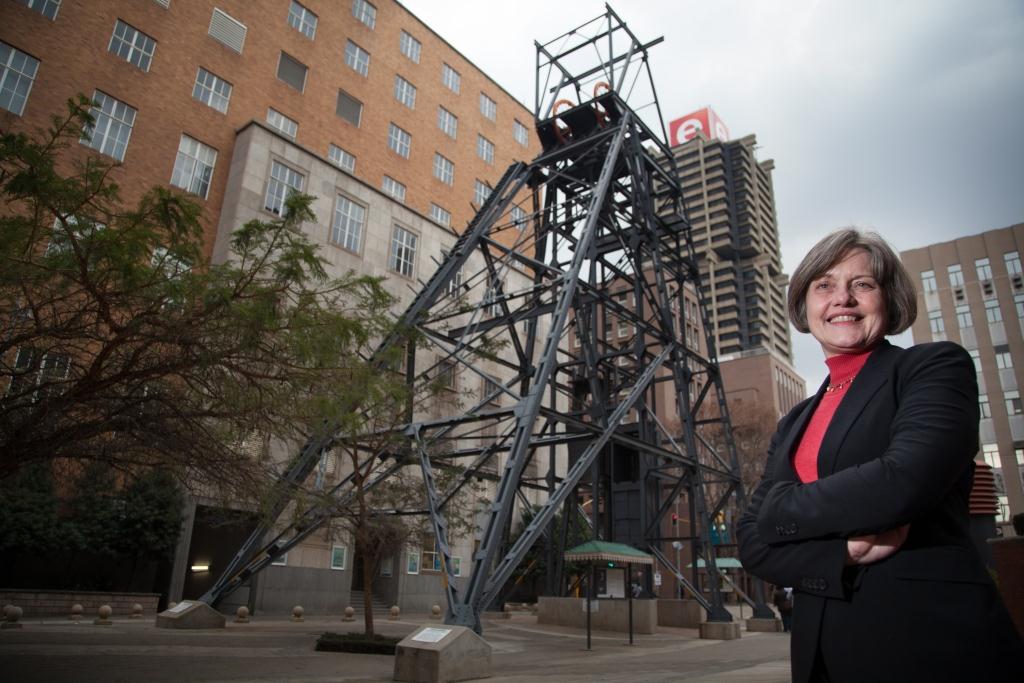Ignore Elize Strydom at your peril. The chief negotiator for the Chamber of Mines may have a calm, affable and measured manner about her, but her warning to society could not be filled with more thunder and fire.
“We have five years to get things right in South Africa or we will have an Arab Spring on our hands. We have tremendous inequality that makes for a ticking time bomb in this country,” says Strydom, the labor relations expert.
She speaks to FORBES WOMAN AFRICA just days after the country’s longest-ever strike, affecting the platinum sector, finally ended (see opposite page). In the same week, the gold mines that traditionally use centralized bargaining (which Strydom leads for industry) had to turn to the labor courts to uphold an interim order preventing trade union Amcu (Association of Mineworkers and Construction Union) from calling a protected strike.
Amcu is the dominant union in the platinum sector but has only about 19% of the total members in gold. Their hardline presence is nevertheless shifting the dynamics of labor relations across the board. Strydom says Amcu represents “a whole different animal” at the negotiation table. They are the elephant in the room. As Strydom points out: “As unskilled labor goes, miners are relatively well paid, yet in the case of the strike in the platinum sector, miners were prepared to sacrifice everything and go without pay for five months. It means we are talking about issues that are much more than just about wages and money.”
It speaks volumes and Strydom puts the watershed moment for labor, government, business and society as a whole, at the Marikana massacre in August two years ago. Forty four people, mostly miners, were killed. The ripple effect from that dark week in the winter of 2012 changed the country and labor relations irrevocably. It has forced government, industry and labor to respond differently. Strydom is up for the challenge – she has to be. In her favor is her track record of breaking molds and surprising everyone by treading where she’s not expected to be. She joined the Chamber in 1999 and became the first woman to lead wage negotiations for the organization, first for the coal sector in 2001 and then for gold in 2005.
Loading...
“Bless the coal sector. They trusted me in 2001, even though they were quite skeptical a woman could lead the negotiations. But by the time I was moving to gold, they were sad that they were losing me,” she says from her corner office in the Chamber of Mines Building in downtown Johannesburg.

She comes armed with a master’s and doctorate in income law, company law and labor law, but Strydom is known to also don a hard hat and make unexpected visits to mines, choosing to descend three kilometers underground to understand conditions mineworkers face every day.
“I’m not an ivory tower person,” she says. She has also been called a capitalist with a socialist heart. She’ll accept the label because she says it’s what makes her fully engaged with an agenda that is not just about pitting two sides together over money. The bigger agenda of socio-economic upliftment and a sustainable and transformed mining sector is what she knows is the bigger prize.
Right now that means focusing on implementing the Framework Agreement for a Sustainable Mining Industry. It’s a government-driven initiative and a document adopted a year ago. It compels organized labor, business and government to meet new targets and address the legacy issues that still cast long shadows over a sector that still props up the economy and gives employment to around 500,000 people.
It’s a framework agreement that is itself framed by multiple inherited pressures. The biggest of which for Strydom, who was at one time a university lecturer, is a failed education system that’s perpetuated a low skills base and a culture of paternalism, that’s pernicious and dominant on South Africa’s mines.
“To me, our biggest failure is that we have lost 20 years of education and now have a lost generation that has not had proper schooling,” says Strydom.
It means her work is never over, not even when she is finally able to take a week’s break in the bush.
But when the break’s over, she’ll be building relationships with new players in the negotiations arena, shoring up old allegiances. She may also be called on to work on more everyday challenges, like developing a buddy system for female miners, overseeing designs for two-piece overalls for women miners or weighing in on how many centimeters a spear can be, before it’s classified a dangerous weapon and banned from a mine.
“It is a challenge, but it’s also an opportunity. It can be exhausting and depressing but I remain fiercely loyal to the mining industry,” she says.
And Strydom isn’t known to flap or spread crises too far out from her. It’s not her style. She says: “I know the essence of me, who I am, and that’s how I can keep my balance, even in mining, which make no mistake, is a tough, tough world.”
Loading...
